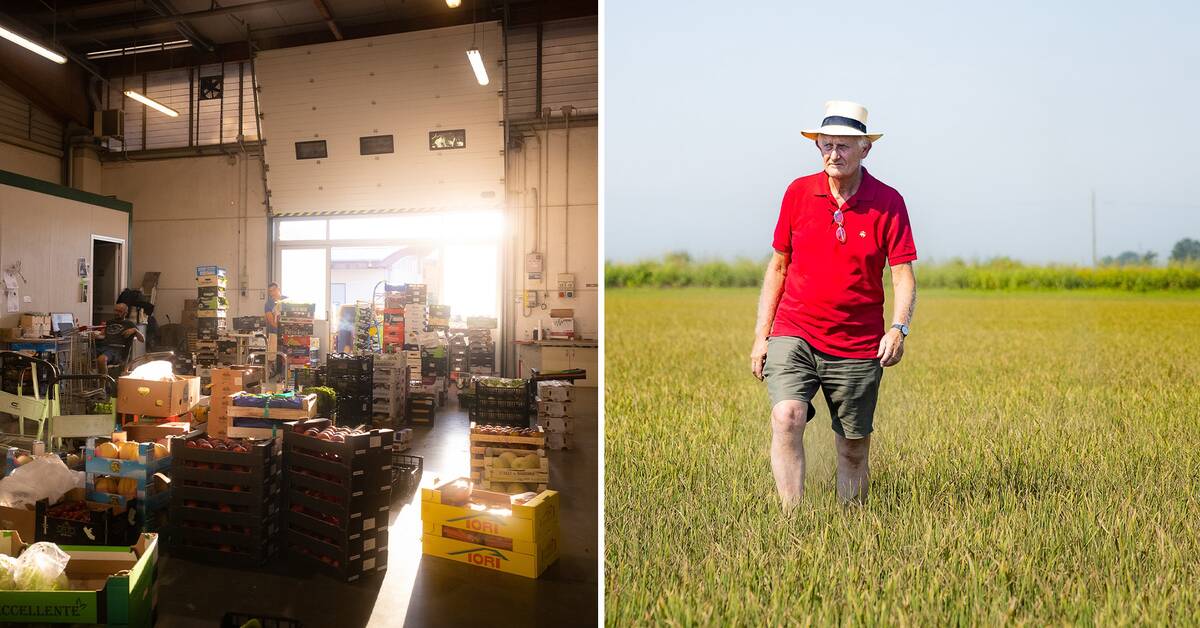Francesco Bergamasco looks at the water flow to his rice farm.
The water is lower than normal and will not be able to fill all the rice beds.
He has been growing rice successfully for over 45 years and has never experienced a drought like this.
- I'm not worried, I'm terrified.
If it is to continue like this, we will have to start growing other crops such as bananas and palm trees, he says.
Half
of Europe's rice production
The areas around the Po in northern Italy account for 50 percent of Europe's rice production and it is only here that risotto rice is grown.
But now the rice fields look like patchwork.
Some fields glow bright green, while others, where the water has not reached, are brown with withered rice plants.
Francesco Bergamasco believes he will be able to save around 80 percent of his harvest, but the neighbors around him will only be able to harvest half when the time comes in September.
Desperate buyers are now trying to secure delivery.
- I have already received offers of more than 20 percent above the normal price, says Francesco Bergamasco.
Vegetables and fruit more expensive
At the market for fruit and vegetables in Parma, we are met with the same message.
The purchase price of tomatoes, for example, has increased by one euro per kilo in just one year, while the quality is worse due to too little water, says salesman Gianpaolo Tiberti.
- The same applies to eggplant, peppers.
All vegetables have increased in price, he says.
Marco Gardella, who is an environmental engineer in Parma, points out where the water level of the river PO is usually normal.
Photo: Nicolas Zellmani/SVT
40 percent of Italy's economy depends on the Po
The farmers are not the only ones affected by the drought.
Around 40 percent of the entire Italian economy is connected to the river Po.
Large industries that need water are located here and drinking water is also obtained from here.
Environmental engineer Marco Gardella works for the agency that oversees Po and he is worried.
In recent years, the water has steadily decreased and this year the water flow is a quarter of normal.
- We have to change our mentality and understand that water is not an infinite resource.
Climate change is real, says Marco Gardella.
Exactly what the prices of the food will land on is difficult to predict.
Other factors are also at play, such as the war in Ukraine, higher fuel prices and inflation.
But expect Italian goods such as risotto rice, tinned tomatoes, wine and olive oil to be more expensive this winter.

